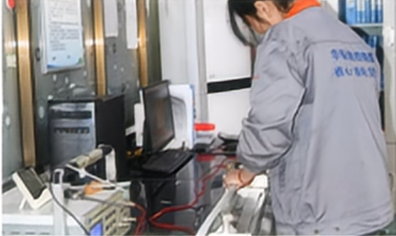
industrial electric wire & cable product
Industrial Electric Wire and Cable Products An Essential Component of Modern Infrastructure
In the modern world, the backbone of any industrial operation is effectively constructed around reliable, high-quality electric wire and cable products. These components are critical in facilitating power transmission, ensuring connectivity, and enabling the functionality of various equipment across diverse sectors, including manufacturing, construction, telecommunications, and utilities. With advancements in technology and an increasing demand for efficiency, the industrial wire and cable industry has seen significant developments in product offerings.
Types of Industrial Electric Wire and Cable Products
Industrial electric wires and cables come in a variety of types, each designed for specific applications. Among the most common are
1. Power Cables These cables are utilized to transmit electrical power from one point to another. They are often found in heavy industrial applications and must withstand harsh environmental conditions, such as extreme temperatures and moisture. Power cables can be single or multi-core and are insulated with materials like PVC or XLPE for enhanced durability.
2. Control Cables Used in automation and control systems, these cables can manage the operation of machinery and equipment. They are designed for low voltage applications and often feature twisted pairs or shielded configurations to minimize electromagnetic interference, which is vital in maintaining signal integrity.
3. Instrumentation Cables These cables are essential for transmitting signals from measuring instruments to control systems. They are especially important in industries such as oil and gas, where accurate data transmission is critical. Instrumentation cables are designed with protective jackets to safeguard against environmental factors and physical damage.
4. Networking Cables With the rise of industrial automation and smart manufacturing, networking cables, including fiber optic and Ethernet cables, have become pivotal. They enable high-speed data transfer between devices, facilitating real-time communication and monitoring.
Material and Design Considerations
industrial electric wire & cable product

The selection of materials for electric wire and cable products is crucial for ensuring performance and longevity. Copper and aluminum are the most commonly used conductors, with copper being favored for its superior electrical conductivity. Insulation materials like thermoplastic and thermoset polymers provide protection against heat, chemicals, and moisture, contributing to safety and reliability in challenging environments.
Furthermore, the design of these cables must adhere to industry standards and regulations, ensuring that they can withstand specific temperature ratings and mechanical stresses. Manufacturers often incorporate features such as armoring, moisture barriers, and fire-resistant properties to increase durability and safety.
Applications Across Industries
Industrial electric wires and cables find applications across a variety of sectors. In the manufacturing industry, they are used to power machinery and equipment, while also supporting automation and control systems that streamline operations. In construction, these products serve as the electrical backbone for buildings, facilitating power distribution and telecommunications. The energy sector relies heavily on electric cables to transmit power from generation sites to consumers, while industries like mining and marine utilize specialized cables designed to endure harsh conditions.
Future Trends and Innovations
As industries evolve, so too do the demands placed on wire and cable products. The increasing focus on sustainability is driving manufacturers to explore eco-friendly materials and energy-efficient technologies. Additionally, innovations such as smart cables equipped with sensors for real-time monitoring and predictive maintenance are paving the way for more resilient and intelligent industrial systems.
Conclusion
Industrial electric wire and cable products are indispensable to the functionality and safety of modern infrastructure. As technology continues to advance and industries adapt to new challenges, the evolution of these essential components will undoubtedly play a vital role in fostering efficiency, sustainability, and innovation in the years to come. Understanding their significance, capabilities, and the ongoing trends will assist stakeholders in making informed decisions that align with their operational needs and long-term goals.
-
The Quantum Leap of XLPE Cable in Power DistributionNewsMay.29,2025
-
Mastering the Essentials of Building WireNewsMay.29,2025
-
Innovative Horizons of Rubber Trailing CablesNewsMay.29,2025
-
Exploring the Versatile World of Rubber CablesNewsMay.29,2025
-
Decoding the Mysteries of Building CablesNewsMay.29,2025
-
Advancements Redefining Control Cable TechnologyNewsMay.29,2025
-
Why It's Time to Replace Old Rubber CablesNewsMay.28,2025














